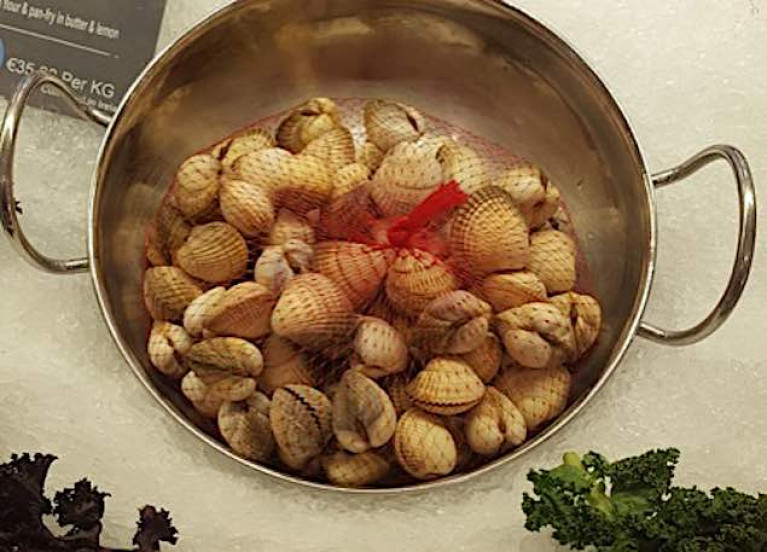Displaying items by tag: Cockles
The Dundalk Bay cockle fishery is the subject of a public consultation opened this week by the Department of Agriculture, Food and the Marine.
Views of all those with an interest in the fishery are sought regarding the permits policy in this consultation which is being carried out in conjunction with the review of the relevant Fisheries Natura Plan.
The department says feedback received during the consultation will inform decisions on further development of the permits policy, in particular “a transparent set of criteria for issuing additional permits in future years where the fishery biomass and total allowable catch are sufficient to accommodate additional fishers”.
Submissions can be made online or by post — after downloading and completing the Consultation Submission Document available HERE — before the closing date of Friday 18 June.
Enquiries concerning this consultation are directed to [email protected]
Cockles & Mussels Alive-oh But Perhaps Not with Molly Malone
The Dubliners' ode to Irish shellfish in their song Molly Malone may have been relying on inaccurate information.
New research by University College, Cork (UCC) scientists reports there is “inconsistent” data on the location of Irish cockles in previous studies.
Cockles are a well-known shellfish across Europe, valued for their “meat, cultural symbolism and ecological value”.
The UCC scientists involved in a Europe-wide “Cockles” project state that records can be found throughout history, from a wide range of sources including museums, scientific works and fisheries records.
 A buried cockle
A buried cockle
However, they have described as “worrisome” the lack of “focus” in previous work.
“An understanding of cockles’ past survival is essential in order to predict how species will fare in a future of climate change,” they say.
The data included locations of where they were found, and how many were there, according to Kate Mahony, of UCC’s School of BEES, AFDC, MaREI and Environmental Research Institute.
“Growing up in Ireland, cockles were part of my childhood. One of the first songs you learn here is about Molly Malone, selling “cockles and mussels” on the streets of Dublin,” she said.
“Because of the importance of the species, here and across Europe, I wasn’t surprised that we were able to gather large amounts of data,” she said.
However, this data was gathered and reported in an inconsistent manner, highlighting the lack of focus on studying the historic and geographic trends of this species, she said.
The scientists compared cockle density (the number of cockles in an area) with changing climate in the Atlantic.
They said it was “evident that cockles were influenced by a wide range of parasites, temperature fluctuations, and varying methods of fishing and legislation”.
The team also examined the sources of their information. Despite the large volume of data, large differences existed in data quality and methodology.
“What really stood out to us was the lack of communication between stakeholders such as scientists and fishery managers,” co-author Dr Sharon Lynch said.
“ We examined the sources of the data and found a large knowledge gap between researchers and those that require this information practically”.
The researchers recommend ensuring improved, knowledge-based fisheries by “standardising monitoring and creating an online portal to increase the knowledge transfer both locally and internationally”.
“These steps will be vital in order to protect this emblematic species into the future,” they state.
Their study is published in the online journal Plos.Org here
























































